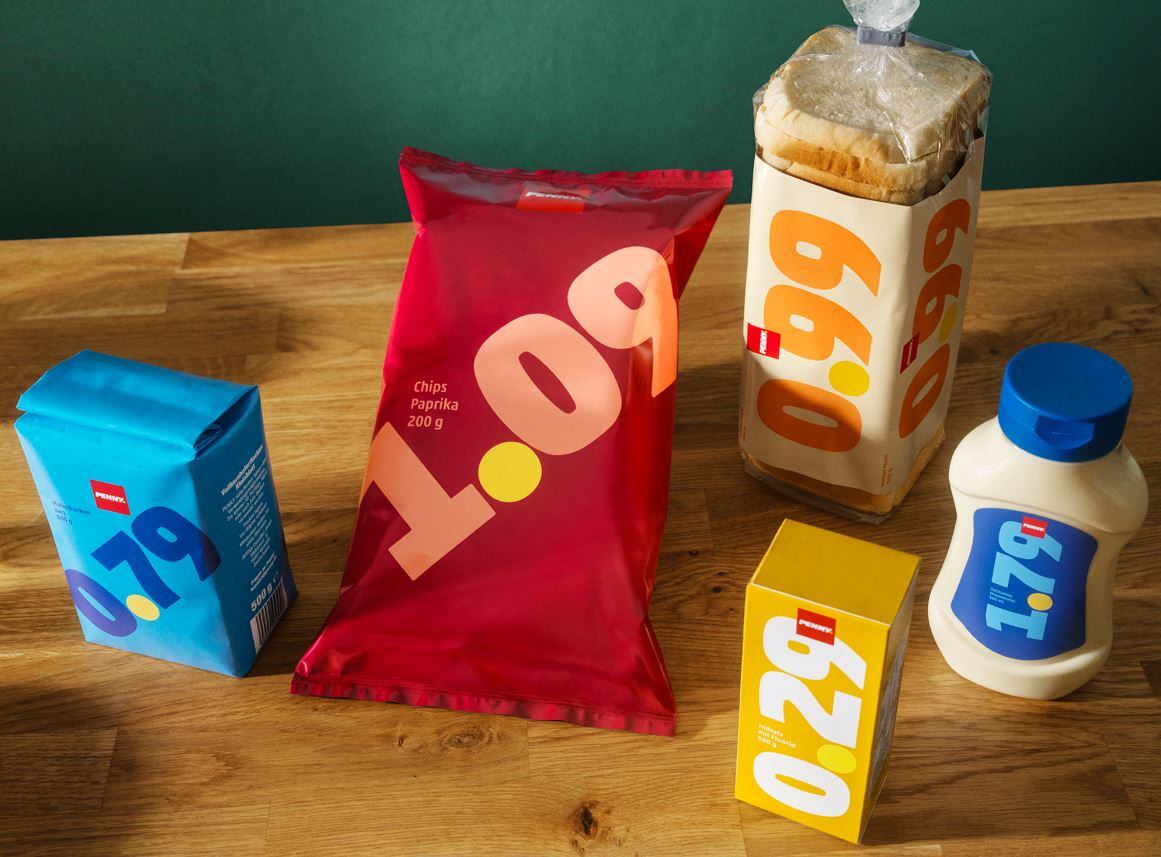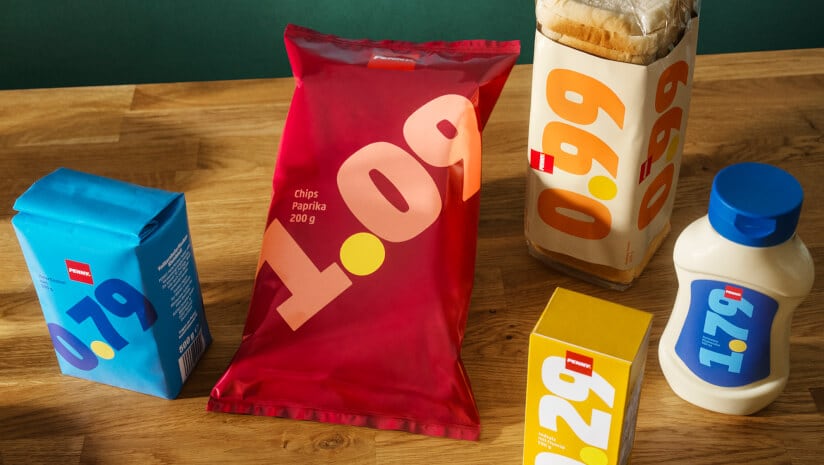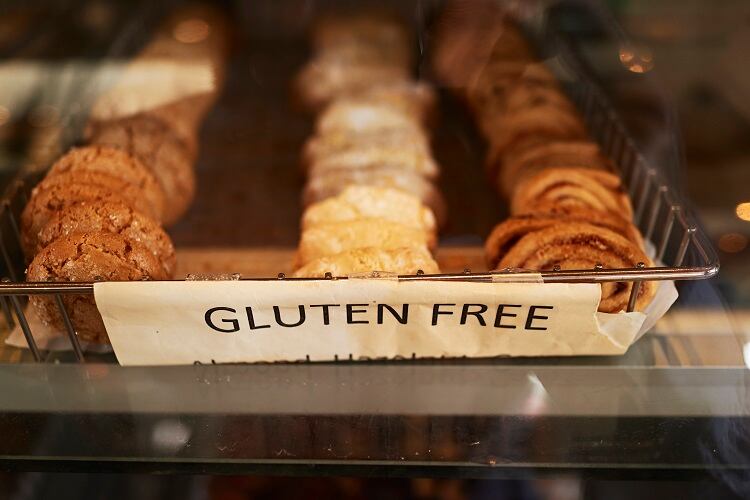Earlier this month the discounter, which has 2,130 stores in the country, launched its new range of oversized price-marked packs (PMP) to put the emphasis on low prices instead of product.
The five lines include own-label oatmeal, toast, salt, chips and mayonnaise. It is the type of genius strategy only a discounter can pull off and was designed in conjunction with Munich-based Serviceplan NEO.
“With the ‘Big on Small Prices’ campaign, we are putting the price on the packaging for the first time, with an eye-catching limited edition that clearly shows our own-label products are always the most affordable choice,” said Penny’s managing director of marketing Dr Jan Flemming in a statement.
That’s all well and good. Consumers across Europe have had a tough time of it with the cost-of-living crisis ramping food and drink prices by upwards of 19% in some countries.
The discounter’s turnover rocketed during the cost-of-living crisis
Let’s not forget, though, the hikes sent customers in their droves to the discounters – Penny’s Germany turnover reached €9.5bn in 2023. In the UK last year, Aldi’s turnover climbed £2bn to a record £15.5bn and Lidl’s to £9.3bn.
So, what about the food and beverage manufacturers and ingredients suppliers? When will they get their own "small prices"?

As retailers continue to pile on the pressure to keep their prices down for cash-strapped consumers, manufacturers continue to feel the pinch, despite making efficiencies, cutting costs and (when or where possible) investing in new technologies.
In some countries, small and medium food and drink manufacturers’ profits are spiralling to rock bottom. The latest Unleashed Manufacturers Health Index showed a 9.18% drop in profitability on average this fiscal year, despite a 9.16% sales uptick.
This is in a European market where, following sharp spikes of inflation, commodity prices are beginning to settle – though nowhere near to pre-pandemic levels.
Food and drink manufacture profits drooping
Just under two-thirds of global food business leaders are conscious they may be unable to claw back profits due to rising costs, recent EFFP data shows. Manufacturers are being “squeezed in the middle” between higher and volatile raw material costs along with incessant retailer pressure to hold or reduce prices.
This puts a stop to all kinds of urgent business requirements, such as investment in tech, research & development and innovation. And the lack of investment in these areas is noticeable, as highlighted by recent research showing many food and beverage manufacturers were risk averse to investment due to spiralling costs.
But it’s not only material costs, energy prices and other inputs have risen and not fallen much or at all. Not to mention wage growth, with many countries in Europe showing some of the highest salary increases since before Covid.
And while the sector is increasing pay, attempting to reduce costs, innovating where it can and maintaining high levels of safety and product quality, the skills gap continues to widen, making way for trouble years down the line.
Yes, Penny’s new PMPs are great for consumers. But for manufacturers, it’s another reminder of eroding margins.
Nicholas Robinson is editor of FoodNavigator, where he is responsible for setting the brand’s daily digital content agenda. He has an extensive background in food and drink, including time as editor of thegrocer.co.uk and senior positions as content director, editor and managing editor at other leading food and drink media titles, as well as luxury lifestyle brands in the superyachting sector and fmcg PR.



